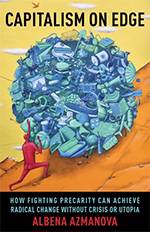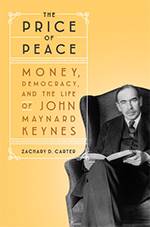OnPoint Subscriber Exclusive

James K. Galbraith
Says More…
This week in Say More, PS talks with James K. Galbraith, Professor of Government and Chair in Government/Business Relations at the Lyndon B. Johnson School of Public Affairs at the University of Texas at Austin.
Project Syndicate: In March, when the COVID-19 crisis was just beginning in the United States, you noted that, when the Japanese attacked Pearl Harbor, the country responded quickly and resolutely. You argued that, when it came to the pandemic, “there [was] not a moment to lose” in mounting a similar all-of-society response. By the time Joe Biden takes office, the US will have lost nearly ten months. Will it be too late for an effective response?
James K. Galbraith: The success of public-health policies in curbing COVID-19 infections and deaths depended on advance preparation and immediate action. A range of governments – including New Zealand, South Korea, Vietnam, Singapore, Cuba, and Taiwan – reacted to the news about the initial outbreak in Wuhan, China, in early January, in most cases mobilizing existing state structures, such as special ministry-level task forces. China itself was only a few weeks behind, and when it mobilized, it did so forcefully, essentially eliminating the virus within a few months. A few European countries – notably Slovakia and Greece – also had a strong initial response.
The worst performers tended to be large, decentralized, politically polarized countries and regions, including Brazil, the European Union as a whole, Russia, the United Kingdom, India, and the United States. In these places, the pandemic will continue to take a serious toll, pending effective vaccines and therapies. With safer individual behaviors, such as social distancing and mask wearing, it can be slowed, but not stopped.
Galbraith recommends
We ask all our Say More contributors to tell our readers about a few books that have impressed them recently. Here are Galbraith's picks:
-

Capitalism on Edge: How Fighting Precarity Can Achieve Radical Change Without Crisis or Utopia
by Albena Azmanova
This is the big-think book of our time. It is a rare successful effort to define the next iteration of capitalism – precarity capitalism – as the successor to neoliberalism. Read my full review here.
-

The Price of Peace: Money, Democracy and the Life of John Maynard Keynes
by Zachary D. Carter
Notwithstanding some criticisms from my friend Bill Janeway, I loved this book. It brings Keynes and his ideas to life for a new generation, and includes an extensive, generous, and just treatment of my father.
-

How China Escaped Shock Therapy (forthcoming)
by Isabella Weber
This is a great work of economics and history, based on a University of Cambridge doctoral dissertation by a newly minted assistant professor at the University of Massachusetts. Weber shows how close the Chinese came in the 1980s to taking the catastrophic Russian path, and documents how and why they chose gradualism with price and exchange controls instead – a decision that was essential to the country’s rise. After reading her manuscript, I understood why I felt right at home in China when I first visited in 1993.
From the PS Archive
From 2018
In What Trump’s Tax Cuts Really Mean for the US Economy, Galbraith rejects the dominant neoclassical interpretation of the relationship between taxation and growth. Read more.
From 2019
In The Unsustainability of Inequality, Galbraith argues that a sustainable and civilized future depends on getting a grip on global finance. Read more.
Around the web
In a podcast for the Johns Hopkins Bloomberg School of Public Health, Galbraith refutes the assumption that COVID-19 responses represent a tradeoff between public health and economic recovery. Listen to the interview.
In a recent commentary, Galbraith shows how the pandemic has obliterated – one hopes for all time – certain shibboleths of the economic textbooks and the US Congressional Budget Office. Read the article.